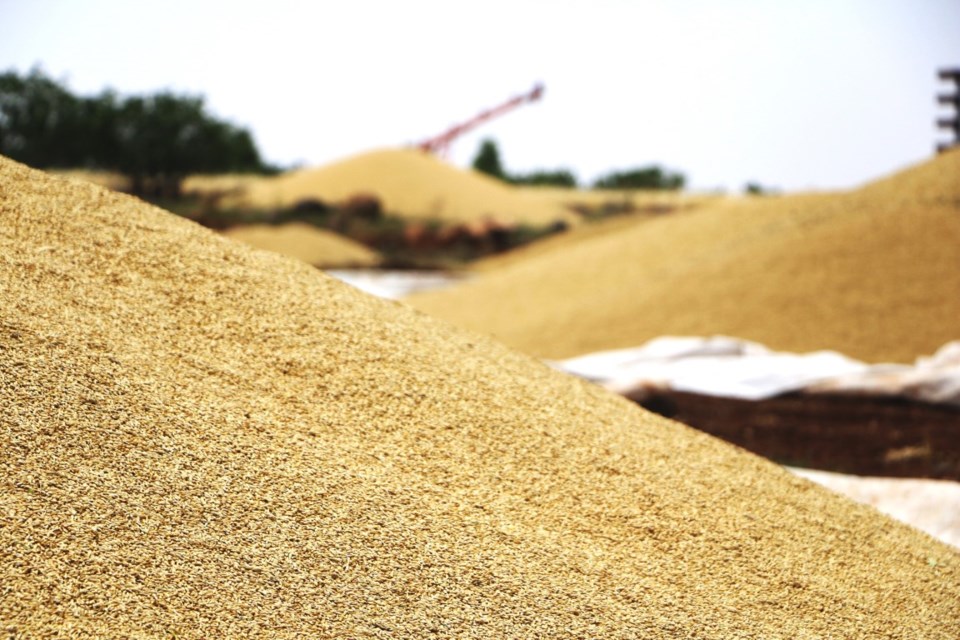WESTERN PRODUCER — Ukraine’s minister of agrarian policy and food said his country needs temporary grain storage from Canada to help store this year’s crop and prevent a large-scale supply crisis.
But ending the war is the main priority, said Mykola Solskyi.
He appeared by video at the House of Commons agriculture committee June 9, where he said storage would be most important “after the armaments.”
About 20 million tonnes of grain are sitting due to blocked seaports and damaged infrastructure.
Solskyi said in May only about 1.7 million tonnes of grain left the country. Typically, the shipments are three times that much.
Ukraine has storage for 75 million tonnes and the minister said between 10 and 15 million tonnes of that has been damaged or destroyed since the war began Feb. 24.
“The most effective way to solve the export problem is to defeat the Russian army on Ukrainian territory,” he told MPs.
At an earlier meeting, Ukrainian MP Yulia Klymenko said Canada could provide more weapons to help get grain moving.
Solskyi said temporary storage, modular construction and plastic grain bags would be useful.
“We would be very grateful if the government of Canada should consider the possibility to provide us with such temporary storages, at least in some parts that need significant help to preserve the crop and help us to supply it to the world markets in the future,” he said through an interpreter.
Solskyi said Ukraine has to deal with the 2021 stocks that haven’t moved, the winter wheat harvest that begins in a few weeks, and the August planting of next year’s winter wheat crop.
He said if wheat can’t move it would not be surprising to see the prices for Egypt and other countries hit $600 to
About 20 percent of Ukrainian farmland is occupied by Russian fighters. Although a typical harvest is about 115 million tonnes, the country is expecting 60 million tonnes of production this year.
“About 35 million plus will need to be exported,” Solskyi said. “Export volumes are still quite large.”
He also said the country could use fruit tree saplings to re-establish orchards. Fruit and vegetable production are not high on Ukrainian farmers’ priority lists right now because of the investment costs and the inability to access their normal irrigation sources.
Farmers usually use irrigation channels off the Dnieper River, but Solskyi said the Russian army is using those channels as defence structures.
He said so far about 10 percent of the port facilities in Ukraine will require repair or replacement because of the war. Elevators, bridges and roads will also need work.
Russia is increasingly targeting agricultural infrastructure and the United Nations has warned of the increasing threat of hunger.
Some Ukrainian wheat has also been stolen.
“About 500,000 to 600,000 tonnes has already been taken out of the country by the Russians,” Solskyi said.
Russia is mixing some of its own grain with that from Ukraine and shipping it to North Africa and Asia. Solskyi said he understands the difficulty a ban on Russian grain would cause and the country is instead asking for sanctions against ship owners, buyers and sellers of the stolen wheat.
Ukrainian farmers in some regions are surrounded by Russian fighters and doing what they can to survive.
“The occupation forces ask them to live according to the Russian laws and register as Russian enterprises. Whoever objects to this can see their grain confiscated,” Solskyi said.
In the Kherson and Zaporizhzhia areas, farmers have evacuated their family members from their homes, and are hiding to avoid the Russian forces, he said.
Committee members from all parties told Solskyi they stand in solidarity with Ukraine.
The committee is currently studying global food security, a concern brought about largely by the war.

